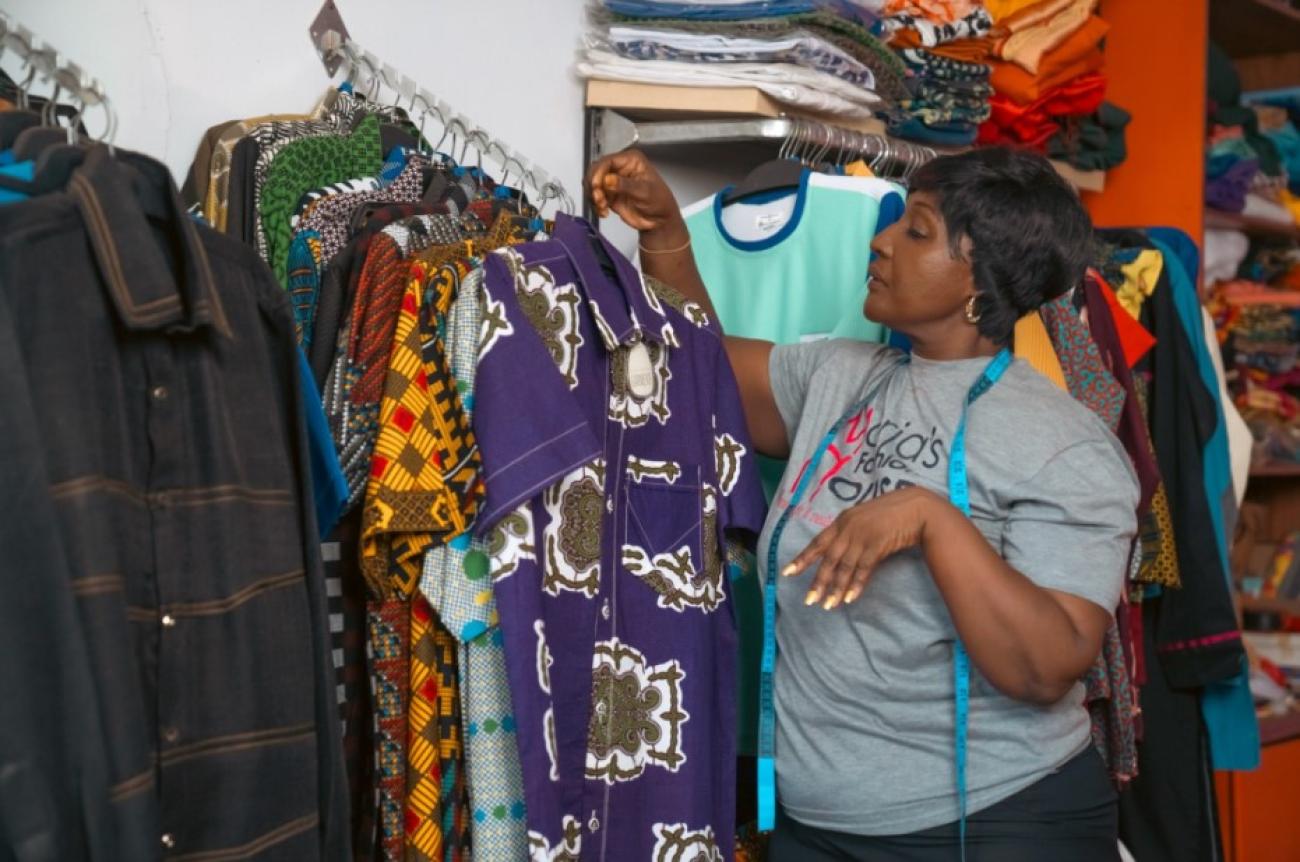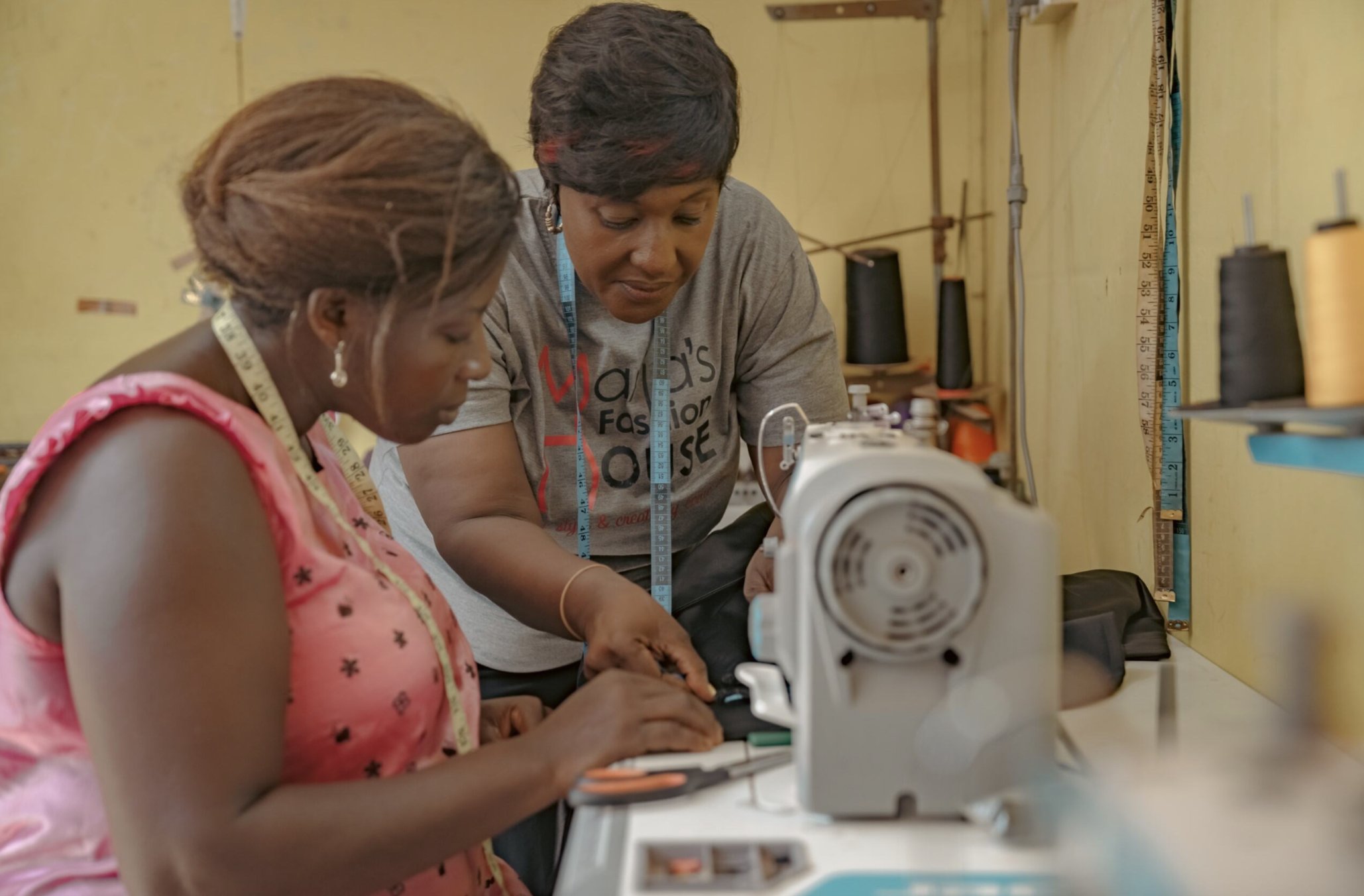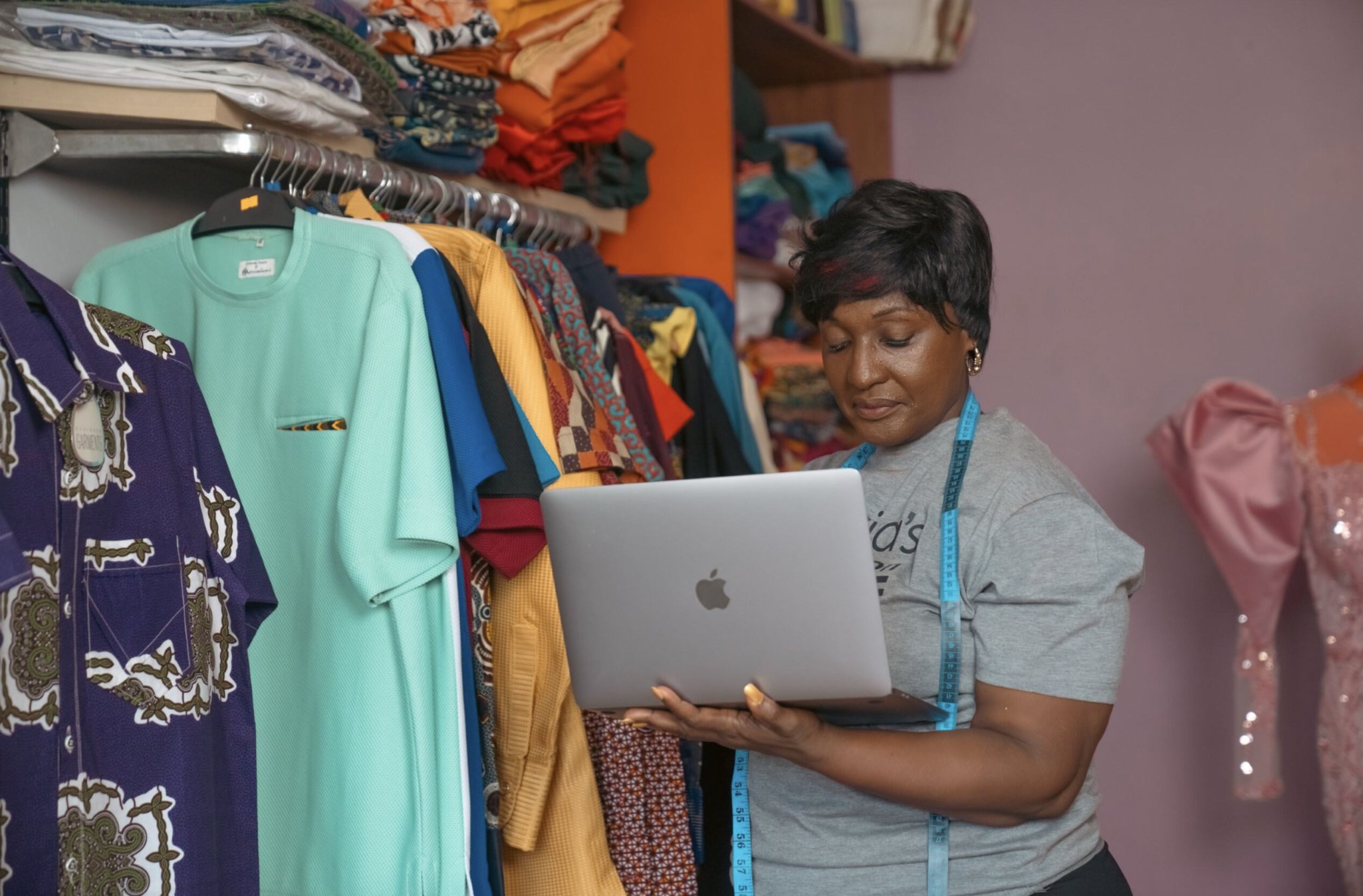Empowering Ghana’s Entrepreneurs: Building a Digital Future for Women and Youth-Led MSMEs

Maria Adams is the owner of Maria Fashion House in Accra, Ghana. A determined entrepreneur, she started her fashion business with a passion for Afrocentric clothing production and dreams of building a brand that could one day expand beyond the shores of Ghana. Yet, like many women and youth-led Micro, Small, and Medium Enterprises (MSMEs), she has encountered hurdles that hinder her growth. These include inadequate digital skills, limited access to finance, and difficulty reaching broader markets.
"I have customers who love my products, but reaching a wider audience online is a challenge. I'm stuck on Facebook, which limits my growth," Maria shares. "But I know that as my business grows with the right support, I won't have to rely solely on my savings or reinvest every little profit just to stay afloat. I'll have more diverse funding options."
Maria's story is one of many. Across Ghana, thousands of MSMEs, particularly those led by women and youth, face similar challenges. While MSMEs contribute significantly to the economy, making up 92 percent of businesses in the country, their potential remains stifled by systemic barriers such as lack of access to finance, limited digital skills and literacy, and inadequate market linkages.

Recognizing these obstacles, the United Nations in Ghana, under the leadership of the United Nations Resident Coordinator's Office (UNRCO) and the Ministry of Trade & Industry (MoTI), with the support of the Joint SDG Fund has launched a transformative joint programme to support MSME owners like Maria. Implemented by the UN Capital Development Fund (UNCDF), the United Nations Development Programme (UNDP), and the UN Trade and Development (UNCTAD), the initiative seeks to strengthen Ghana's digital ecosystem and empower 25,000 youth and women-led MSMEs through financial inclusion, digital skills training, a conducive e-commerce environment, and enhanced market access. By aligning with Ghana's digital transformation agenda, the programme is not only providing immediate support but also paving the way for long-term economic resilience.
Addressing the Root Causes of MSME Struggles
For entrepreneurs like Maria, securing loans or investment capital remains one of the greatest hurdles.
"Our interest rates in Ghana are exceptionally high. When we participate in international exhibitions, for instance, we often find our counterparts offering their products at much more competitive prices. Then it really dawns on us that the high borrowing cost is one of the reasons we are not competitive in the global market," she explained.
Traditional financial institutions often perceive MSMEs as high-risk, leaving them with limited funding options. Through this joint programme, financial service providers will develop tailored digital financial solutions, including digital payments, savings products, and innovative credit facilities that cater to the unique needs of MSMEs.

Beyond financing, the programme is committed to supporting young people in ways that drive MSME growth. For instance, 25,000 youth and women-led MSMEs should access new or adapted digital financial services; 10,000 youth and women-led MSMEs will receive tailored digital and financial skills training; and over 7,500 MSMEs will receive skills training and e-commerce support from innovation hubs, ESOs, and Business Advisory Centres (BACs). Additionally, over 7,500 MSMEs will be able to access business advisory support and other support services from a digital gateway platform launched by the Ghana Enterprises Agency, while the Government of Ghana will unveil an e-commerce strategy and integrate a digital platform for planning and monitoring e-commerce reforms.
A Future of Economic Resilience and Opportunity
According to Maria, the joint programme offers more than just business support; it represents hope.
"If I can master selling online and access the right funding and market, my business can finally grow. I've poured my heart into this venture, so I know that with the right support, small businesses like mine can create jobs and make a real impact. I'm excited for what's ahead and hopeful this will be the turning point I've been waiting for."
The goal is to provide short-term solutions, drive systemic change, and align with Ghana's digital transformation goals. In return, it generates over US$13 million in co-financing to serve as a catalyst for further investment in Ghana's MSME sector. The broader vision is to create a financial ecosystem where MSMEs are no longer sidelined but are empowered with the tools, skills, and support needed to thrive. This transformation's ripple effects will benefit individual entrepreneurs and contribute to Ghana's broader economic resilience.
To read more coordination results from the UN in Ghana click here.













